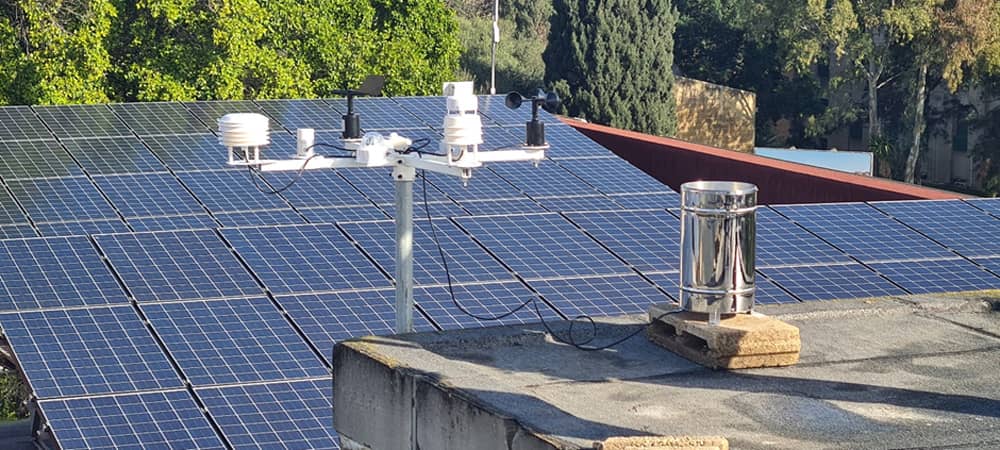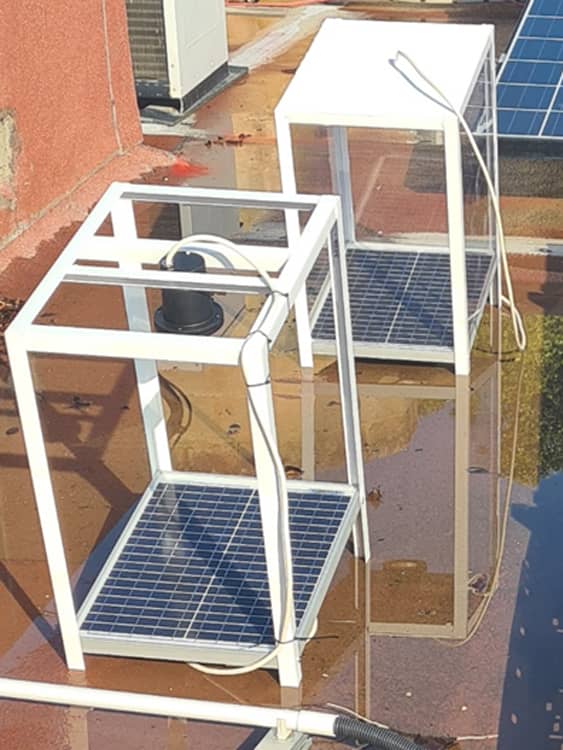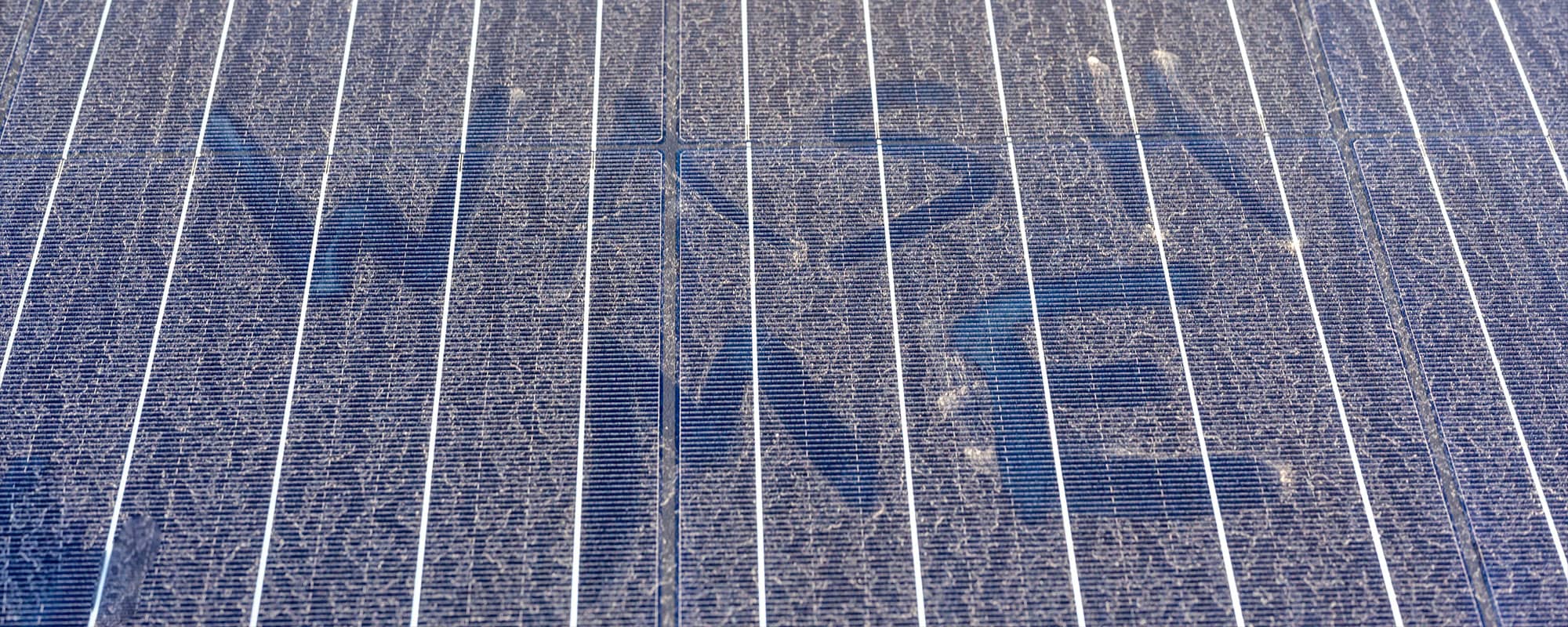The DustPV project, led by Prof. Ing. Joseph Micallef, aims to determine the optimal timing for cleaning solar panels using innovative sensor technology and weather data analysis. By addressing the challenges of dust accumulation on photovoltaic panels, the project seeks to enhance solar panel performance and contribute to Malta’s renewable energy goals.
Clean solar panels are crucial for maximising their efficiency. The question is, when should they be cleaned? Taking a car to the carwash when it is visibly dirty is one thing, but determining the appropriate time for cleaning solar panels is much more complex. The research being done by the DustPV project seeks to unravel this challenge and improve the overall performance of solar panels.
With the increasing global emphasis on transitioning to renewable energy sources, photovoltaic (PV) panels have become popular. The Maltese islands, blessed with a sunny Mediterranean climate, offer ideal conditions for solar power generation. However, challenges; such as vehicle and traffic emissions, construction activities, Saharan dust, and volcanic residue from neighbouring Sicily’s Mount Etna, hinder the efficiency of PV panels due to the accumulation of dust particles. Addressing this issue, the DustPV project, spearheaded by researchers Barnaby Portelli, Ivan Grech, Joseph Micallef, and Ryan D’Amato, aims to determine the optimal timing for cleaning solar panels using innovative sensor technology and weather data analysis.

Innovative Techniques for Industrial Solar Farms
Focusing primarily on industrial solar farms, where cleaning efforts are resource-intensive, the project explores two key evaluation techniques: the Dust Related Power Loss (DRPL) sensor and gathering data from a local weather station.
The DRPL sensor, developed internally by the Faculty of ICT, directly measures the loss of solar panel performance caused by dust. It was developed by using two 50W solar panels- one exposed to the environment and one sealed in an enclosure. This way one remains clean and the other can become dirty. Each panel has a light shone on it for a short amount of time each night and when a difference is seen in how well they work, it means that the outside panel is accumulating dust. This signals that it’s time for a clean.
Installed alongside the solar farm, the sensor collects remote data on the percentage of power loss, enabling decision-makers to assess the cost-effectiveness of panel cleaning. Alternatively, local weather data, including wind speed, wind direction, rain conditions, and sunlight, can be utilized to model dust accumulation on the panels.

To evaluate the effectiveness of the DRPL sensor and weather station, a system of eight solar panels was installed on the university roof. These panels are subjected to different cleaning schedules, providing valuable data on the impact of dust accumulation on performance. The project is currently in the data collection stage, aiming to calibrate and evaluate the effectiveness of the DRPL sensor and weather station in measuring dust-related power loss within the system.
Paving the Way for a Sustainable Energy Landscape
The DustPV project holds significant potential for impacting the renewable energy sector in Malta in various ways, which creates exciting prospects. By accurately measuring the dust-related power loss and identifying the most effective cleaning time for solar panels, it could lead to improved energy generation.
Maintaining solar farms generates quite an expense and one of the benefits of this research project is that it can help reduce costs by implementing optimised cleaning schedules. Making renewable energy more financially viable in Malta will ensure a more sustainable future.
Reducing carbon emissions and decreasing our reliance on fossil fuels helps mitigate climate change and supports Malta’s transition to a greener, more sustainable energy landscape. As a small island nation, we can set an example for other EU countries by meeting the European Union’s target of reducing greenhouse gas emissions by at least 40% below 1990 levels by 2030.
While the DustPV project initially focuses on industrial solar farms, its findings and methodologies have the potential for scalability. The insights gained from studying large-scale solar farms can be extrapolated and applied to residential PV panel systems too. Homeowners with PV panels may benefit personally and environmentally by reducing their energy costs and tailoring their solar panel cleaning schedules to specific environmental conditions.
The potential impacts of this research encompass improved solar farm performance, cost reduction, environmental benefits, scalability, and the advancement of knowledge in the renewable energy sector. DustPV has the potential to contribute significantly to Malta’s renewable energy goals and pave the way for a more sustainable future, thus solidifying its commitment to a greener environment as well as reaping the benefits of Malta’s abundant solar resources.
The DustPV Project is being funded by the Energy and Water Agency as it is a beneficiary of the 2021 Research and Innovation Scheme.





Comments are closed for this article!